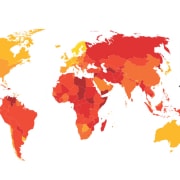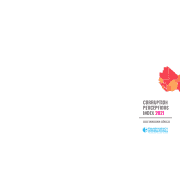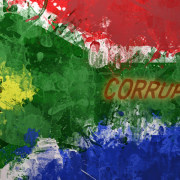|
Getting your Trinity Audio player ready...
|
Transparency International’s 2020 Corruption Perceptions Index (CPI), released today, highlights how corruption has impacted the ability of countries around the world, including South Africa, to manage their health care responses to the Covid-19 pandemic.
South Africa has barely shifted its position, coming in once again with a score of 44 and a rank of 69, alongside Bulgaria, Hungary, Jamaica, Romania and Tunisia. For the past eight years, the country has been more or less stuck at 44, forming part of the two-thirds of countries with a score below 50, indicating serious levels of corruption.
“South Africa’s failure to move above the 50 point on the CPI for nearly ten years is a damning indictment of the extent of corruption and just how damaging it has been to the country,” says David Lewis, executive director of Corruption Watch. “Public trust in government has been further eroded during the Covid-19 pandemic, as blatant flouting of procurement processes has characterised the purchase of personal protective equipment, at a time when all of society needs to work together with integrity.”
Nearly half of countries surveyed have been stagnant on the index for almost a decade, suggesting a failure of government efforts to really address the root causes of corruption.
The 2020 edition of the CPI, respected as a leading global indicator of public sector corruption, scores and ranks 180 countries and territories around the world based on perceptions of corruption, drawing on 13 expert assessments and surveys of businesspeople, not the public. It uses a scale of zero to 100, where zero is highly corrupt and 100 is very clean.
Predictably, sub-Saharan Africa (SSA) remains the lowest scoring region on the CPI, with an average of 32, showing little improvement from previous years. The Seychelles once again tops the group of 49 countries surveyed in the region, with a score of 66, followed by Botswana (60) and Cabo Verde (58), while Somalia and South Sudan both clock in at the bottom of the table with an abysmal 12 out of 100.
Impact of Covid-19
The conditions imposed by the novel coronavirus on countries around the world, including the necessity for emergency procurement processes, brought with them integrity challenges. In South Africa, lack of transparency in public spending has characterised the response to the coronavirus, along with diversion of funds allocated specifically for managing the pandemic, and self-enrichment of people in power.
Many countries, including those with higher scores on the index, have experienced their share of corruption during the pandemic, which has shown itself to be as much a corruption crisis as a health and economic one.
The structural gaps in national health care systems have been brought into sharp relief across the region as a result of Covid-19, along with corruption risks in relation to public procurement and misuse of emergency funds. In South Africa and other countries in the region, the economic shocks allude to the fact that these countries were ill equipped to handle the pandemic. The imposition of strict lockdowns to curb transmission, coupled with emerging evidence of fraud, corruption and price fixing, sparked unrest and calls for temporary relief measures to assist citizens during the public health emergency. There is no doubt that pervasive corruption has played a significant role in hampering the ability of many SSA countries to respond effectively to the pandemic and deliver services to their populations.
Recommendations
The recommendations in the CPI this year are particularly pertinent to the impact of Covid-19 on countries around the world, whether at the top or the bottom of the index, although those with less robust democracies and adherence to the rule of law are obviously more at risk.
The report points to how essential it is for countries to strengthen their oversight institutions to ensure that resources can cater for those most in need, while also making sufficient funds and resources available to these institutions, allowing them the independence to perform their duties without interference.
The CPI stresses that it is equally critical to prioritise open and transparent contracting, to eliminate theft and mismanagement of funds, identify conflicts of interest, and allow for fair pricing. It also advocates for the publishing of relevant data to guarantee access to information, an area that Corruption Watch is currently heavily invested in, for example open contracting systems in the health sector that allow the public access to contracts and services that affect their lives. The aim is to provide easy, accessible, timely and meaningful information that includes insight into public spending and resource distribution, of particular relevance in emergency situations.
“As for South Africa’s ability to emerge from its stagnant position in the future, there are some signs that with the right attitude and commitment, and real changes to policies and processes, the opportunities for corruption could be reduced,” says Lewis.
“The increased efforts of civil society to uncover corruption during the pandemic and to push for greater transparency in emergency procurement has the potential to turn things around, provided there is political will to disclose decisions that are in the public interest,” he concludes.
Access the 2020 CPI report here.
For more information:
Phemelo Khaas 083 763 3472 phemelok@corruptionwatch.org.za








